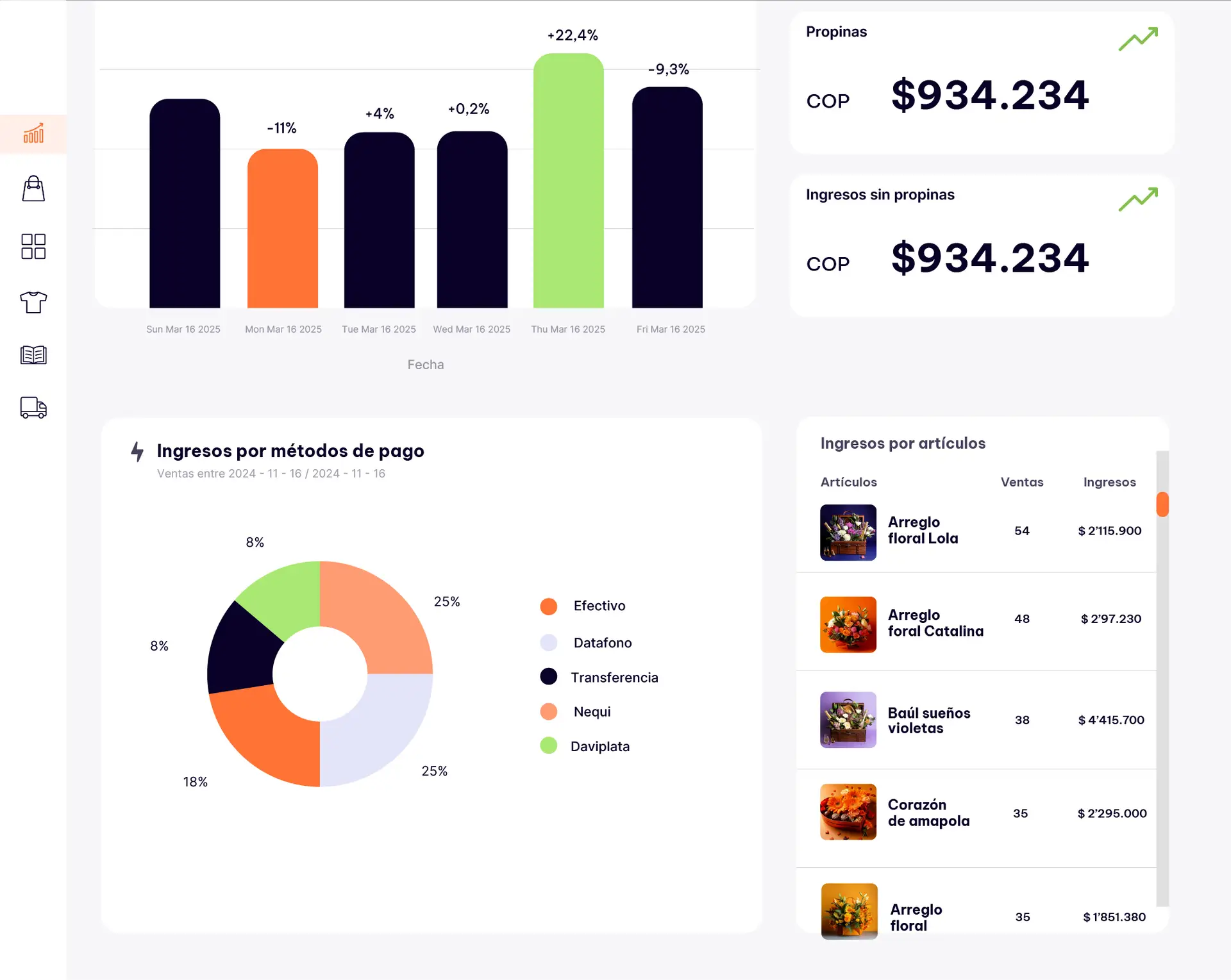Introduction: Consistency Is the Real Competitive Advantage
Some days, your store feels unstoppable. Sales are flowing, customers are smiling, your team is clicking. Other days? Nothing goes right. You’re reacting to everything, overwhelmed by the chaos, and wondering if you’re even moving forward.
This emotional rollercoaster is normal — but it’s not sustainable.
The truth is, retail success isn’t built by motivation. It’s built by habits.
Motivation fades. Surprises happen. But habits — the small, repeated actions you do every day — create a foundation that holds steady no matter what comes your way.
Big results come from small, consistent moves.
The most successful store owners aren’t those with the fanciest branding or the most followers. They’re the ones who’ve learned to show up daily — with systems that support their goals, routines that keep them grounded, and clarity on what truly matters.
The problem? Most retailers are stuck in reactive mode. They’re too busy putting out fires to build structure. They confuse motion with progress. And when things slow down, they don’t know what to focus on — because there’s no rhythm.
This article is your guide to changing that.
We’ll walk through five powerful daily habits that will help you:
- Keep your store running smoothly
- Make smarter decisions with less stress
- Stay aligned with your long-term goals
- Lead your team with calm, not chaos
It’s not about doing more — it’s about doing the right things, consistently.
Let’s start with a habit that takes just 15 minutes a day — but can transform your clarity and control.
1. Start Every Day with a Quick Sales & Inventory Review
If you don’t check the pulse of your business daily, you’re leading blind. A fast daily check of sales and inventory helps you stay grounded, spot trends, and make smarter choices — fast.
Why it matters:
- You see what’s moving and what’s not
- You catch low-stock issues before they become stockouts
- You notice patterns early (good or bad)
What to review (daily):
- Total sales yesterday (vs. same day last week)
- Top 3 selling products
- Inventory alerts (low stock or overstocked)
- Voids or returns
Keep it simple:
Set a daily routine (e.g., every morning before opening). Use your POS dashboard or a printed summary. Don’t aim for perfection — just visibility.
Real-world example:
Marco owns a mini-market. Each morning, he checks his dashboard over coffee. Last Thursday, he spotted that soda sales dropped 30% — turns out, the fridge light was out. He fixed it before the weekend, and sales bounced back. Small habit, big result.
Practical Exercise:
Set a 15-minute recurring calendar reminder every morning. Choose your 3 key numbers. Track them in a notebook, spreadsheet, or POS system — but do it consistently for 7 days.
2. Connect with One Customer (Yes, One)
Retail isn’t just about products — it’s about people. Making one meaningful customer connection per day can transform your business in ways that go beyond numbers.
Why it matters:
- Builds loyalty and repeat business
- Creates insights you won’t find in reports
- Deepens your reputation in the community
Ways to connect (in 5 minutes):
- Send a WhatsApp or Instagram DM to a recent buyer: “How did you like it?”
- Ask a customer in-store what brought them in today
- Write a thank-you note or voice message to a VIP
- Follow up after a sale with a tip or recommendation
Bonus:
These moments often lead to unexpected referrals, positive reviews, and valuable feedback.
Real-world example:
Julia runs a small fashion boutique. She sends a voice note to every new customer the day after they buy: “Thanks for visiting! That blouse looked amazing on you.” Her repeat rate is 40% — double the local average.
Practical Exercise:
Make a list of 5 recent or frequent customers. Choose one per day this week to message or talk to. Keep it light, personal, and genuine — no pitch, just connection.
3. Prioritize One Improvement Task Per Day
You’ll always have more to do than time to do it. That’s why you need to focus on one task that makes your store better — not just busier.
Why it matters:
Daily improvements compound. Fixing one thing per day means 30 better systems, displays, or experiences every month. That’s growth — without burnout.
What counts as an “improvement task”?
- Rewriting a confusing sign
- Updating your Google Business profile
- Organizing a messy shelf
- Creating a FAQ for your team
- Reviewing pricing on slow movers
Avoid the trap:
Don’t confuse “urgent” with “important.” This habit is about long-term value — not just short-term fires.
Real-world example:
Enrique owns a pet supply store. One day, he spends 15 minutes redesigning his “new arrivals” sign to make it clearer. Sales of those items increase by 22% in a week — all from one focused improvement.
Practical Exercise:
Each morning, write down one thing you’ll improve today. Just one. Small is fine — as long as it adds value. Do it before the day gets away from you.
4. Review One Metric That Matters
Many store owners drown in data — but never actually use it. Looking at one key number each day helps you stay focused, spot trends, and lead with insight, not emotion.
Why it matters:
- Keeps your strategy sharp
- Prevents “busy work” from replacing smart work
- Helps you lead based on facts — not feelings
What kind of metrics?
- Average ticket size
- Daily foot traffic
- Customer retention rate
- Loyalty program redemptions
- Online visits or message replies
How to choose the right one:
Pick a metric that aligns with your current goal. Want to increase profitability? Track margin. Want more return customers? Track repeat rate.
Real-world example:
Laura owns a bookstore. She starts tracking her average ticket daily. After three weeks, she realizes that weekends drop by 18%. She trains her team to suggest bundles on Saturdays — and the gap closes in two weeks.
Practical Exercise:
Pick one metric to track for the next 14 days. Write it in the same notebook or spreadsheet at the same time every day. Add a quick note: “What influenced this number today?”
5. Reflect and Reset Before You Close
A 10-minute reflection at the end of your day might seem unnecessary. But over time, it becomes your greatest tool for growth, learning, and resilience.
Why it matters:
- Reinforces what worked
- Clarifies what to change
- Reduces mental clutter (you sleep better!)
- Builds your leadership mindset
What to ask yourself:
- What went well today — and why?
- What didn’t go as planned — and what can I do differently?
- What one win can I celebrate, no matter how small?
Even better:
Do this with your team once a week. It builds culture, trust, and momentum.
Real-world example:
Diego runs a tech accessory shop. Every evening, he writes 3 lines in a notebook: one win, one challenge, one idea. After 4 months, that notebook becomes his most valuable strategic tool — and the basis for his weekly meetings.
Practical Exercise:
Start today. Take 5–10 minutes after closing to answer the three reflection questions above. Do it for 7 days straight. Watch how it shifts your perspective.
Final Reflection: The Power of Quiet, Consistent Progress
Big wins get headlines. But in retail, it’s the quiet wins — repeated daily — that build the business you dream of.
Not every day will be perfect. Not every habit will feel exciting. But when you commit to showing up with purpose — even for just 30 focused minutes — you build something far more powerful than momentum: you build discipline.
And discipline is the foundation of sustainable success.
The truth is, most struggling stores don’t fail because of one bad decision.
They fail because of a thousand small things left undone.
No rhythm. No focus. No habits.
But that doesn’t have to be you.
You don’t need to do everything. You just need to do a few essential things — every day — and do them well.
Check your numbers. Talk to one customer. Improve one thing. Watch one metric. Reflect before you close.
That’s your rhythm. That’s your advantage. That’s your growth engine.
So don’t wait until you’re overwhelmed to “get organized.”
Start today. Build a foundation that supports you — even when things get hard.
Because the best retailers aren’t the ones who hustle the hardest.
They’re the ones who build habits that last.





